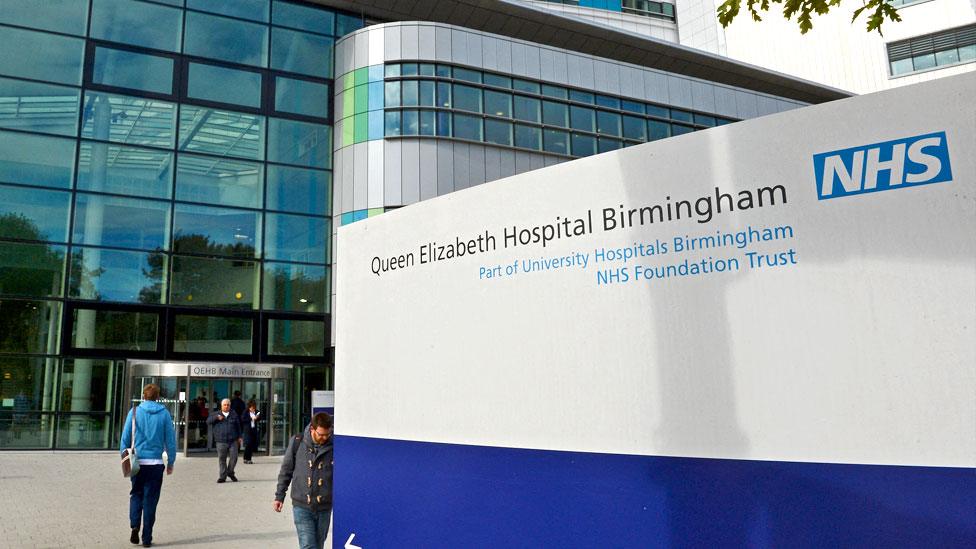Patient safety concerns over Birmingham hospital probe
- Published

University Hospitals Birmingham employs about 20,000 staff and treats more than 2.2 million patients a year
An NHS England investigation into claims of a toxic culture at a hospital trust has been described as lacking transparency and undermining trust.
The Parliamentary Health Service Ombudsman also said there were "very serious" patient safety issues at University Hospitals Birmingham (UHB).
Criticism is contained in letters seen by the BBC between the ombudsman, the trust and NHS England.
The trust said it had told the ombudsman it took concerns seriously.
It added it was "committed to working with the ombudsman to ensure all families have a clear understanding of any issues relating to their loved one's care".
The inquiries, commissioned by the Birmingham and Solihull Integrated Care Board and the local NHS, were begun in response to an investigation by BBC Newsnight and BBC West Midlands which heard from current and former clinicians from the trust, who accused it of being "mafia-like".
The trust has previously denied this allegation.
NHS England in the region is overseeing the reports into culture, leadership and patient safety issues at UHB.
One of England's biggest hospital trusts, UHB has been in the spotlight for months after three probes were started following allegations doctors there were threatened for raising safety concerns.
The trust denies this and says its "first priority is patient safety".
The ombudsman, however, said he was sceptical about the reviews' transparency and independence.
His finding of "very serious" patient safety issues at UHB is based on the trust's response to the ombudsman's recommendations and findings, including a case of an avoidable patient death.
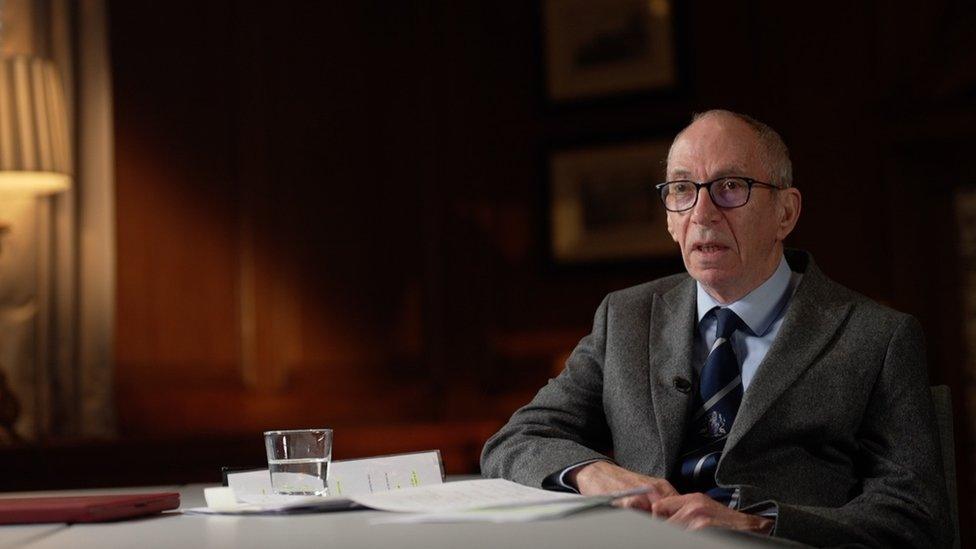
In a letter to the hospital trust, ombudsman Rob Behrens said he was concerned by leaders' "defensiveness"
In letters seen by Newsnight, the ombudsman Rob Behrens has written to the trust and NHS England, criticising both.
Mr Behrens wrote his organisation had been excluded from the NHS England-led review into UHB, expressing his disappointment that evidence held by the ombudsman would not be considered.
"PHSO's (Parliamentary Health Service Ombudsman) exclusion from the review process leaves me concerned about the completeness and transparency of the reviews," he wrote.
In a separate letter to under-fire UHB's interim chief executive, Mr Behrens said:
he was "concerned by the defensiveness" of leaders at the trust
that confidence the trust had a "willingness to accept accountability or learn from failings" had been eroded
that the trust had failed to act on recommendations from the ombudsman
Speaking to Newsnight, Mr Behrens said his organisation had investigated two avoidable deaths at the trust.
He said he was so concerned by patient safety issues there that in an unprecedented move last summer, he triggered an "emerging concerns protocol".
First use of protocol
It followed an ombudsman investigation, which "found a death was avoidable, but trust leadership refused to accept our findings", Mr Behrens wrote to NHS England.
The protocol allows health regulators to share risk information about a hospital.
"This is the first time that I have done it," Mr Behrens told Newsnight. "So that represents the seriousness with which we regard these issues."

UHB has an annual turnover of £1.6bn and is one of the largest teaching hospital trusts in England
The ombudsman's office receives about 30,000 complaints a year and can make recommendations to the hospitals concerned.
It has no enforcement powers but says it has a 97% compliance rate.
According to figures provided by the watchdog, it has had more complaints about UHB in the past three years than about any other trust.
The publication of what was described by local NHS officials as a "rapid review" into patient safety following Newsnight and BBC West Midlands' investigation has since been delayed.
It had been due to report last week, but publication has now been postponed by days, possibly weeks.
'Undermines credibility'
However, David Melbourne, the chief executive of Birmingham and Solihull Integrated Care Board (ICB), which commissioned the probe, told local councillors recently reviewers had "not identified any red flags in terms of safety".
But Mr Behrens said it was too early to make that conclusion.
"It does not chime with my experience," he said.
"It is a problem. It's illustrative of the defensive behaviour which undermines the credibility of the trust in the first place.
"If those reviewing the behaviour in the trust had had more confidence, then there would have been a more open inquiry which would enable us and other regulators to give our experience and our evidence and then, on that basis, a more inclusive judgement could have been taken.
"But I think it is very early to be reassured about these issues."
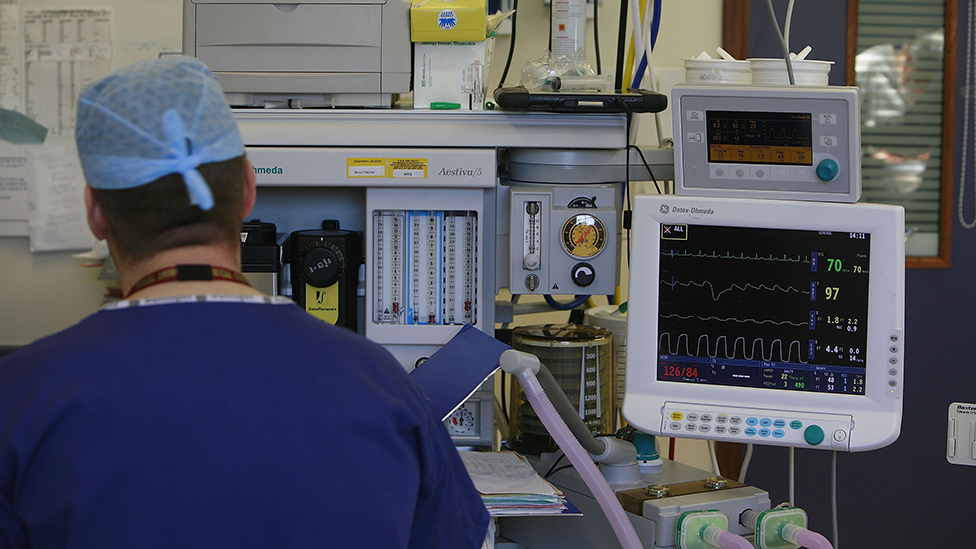
The trust runs four main hospitals in Birmingham and Solihull
In a document released on Friday, the ICB said of the patient safety review "there are no fundamental safety issues at the trust" but that "there are substantial issues around culture, behaviour, leadership and governance that will need to be addressed".
On this claim, again, the health service ombudsman was scathing.
"You can't split patient safety from culture and leadership in organisations," he said, adding the two were "intimately connected".
"Clinicians take their lead from the views and the disposition of the trust leaders, the chief executives and the board," he said.
"It's up to the leaders of the trust to create a climate which gives primacy to patient safety, not to the reputation of the organisation."
In response, UHB told the BBC: "The chief executive has responded to the [ombudsman's] letter, to provide reassurance that their concerns have been taken seriously."
It also said it had been working to arrange further meetings with the ombudsman "to agree how our organisations can work better together in the interests of our patients and staff".
NHS England in the Midlands said: "The reviews into University Hospitals Birmingham Trust have been commissioned to rigorously scrutinise leadership and culture in the organisation to ensure they are providing safe care for patients, as well as providing transparent information on any areas where support and challenge are needed at the trust.
"We welcome the offer of support from the ombudsman's office who we have recently met, and we are continuing to work with them to use their expertise where it can offer most value as part of the planned cultural review."
NHS Birmingham and Solihull said: "We have not heard from the ombudsman on this matter but would welcome a conversation and are keen to provide assurance on the processes we are following.
"The review is, and will continue to be, independent and we have published regular updates at our board and at local scrutiny groups.
"The cross-party reference group is an additional commitment to ensuring independence."
Additional reporting by Charlotte Rowles and Emily O'Sullivan.


Have you been affected by any of the issues raised in this story? Share your experiences by emailing haveyoursay@bbc.co.uk, external.
Please include a contact number if you are willing to speak to a BBC journalist. You can also get in touch in the following ways:
WhatsApp: +44 7756 165803
Tweet: @BBC_HaveYourSay, external
Please read our terms & conditions and privacy policy
If you are reading this page and can't see the form you will need to visit the mobile version of the BBC website to submit your question or comment or you can email us at HaveYourSay@bbc.co.uk, external. Please include your name, age and location with any submission.
Follow BBC West Midlands on Facebook, external, Twitter, external and Instagram, external. Send your story ideas to: newsonline.westmidlands@bbc.co.uk, external
- Published24 February 2023

- Published13 January 2023
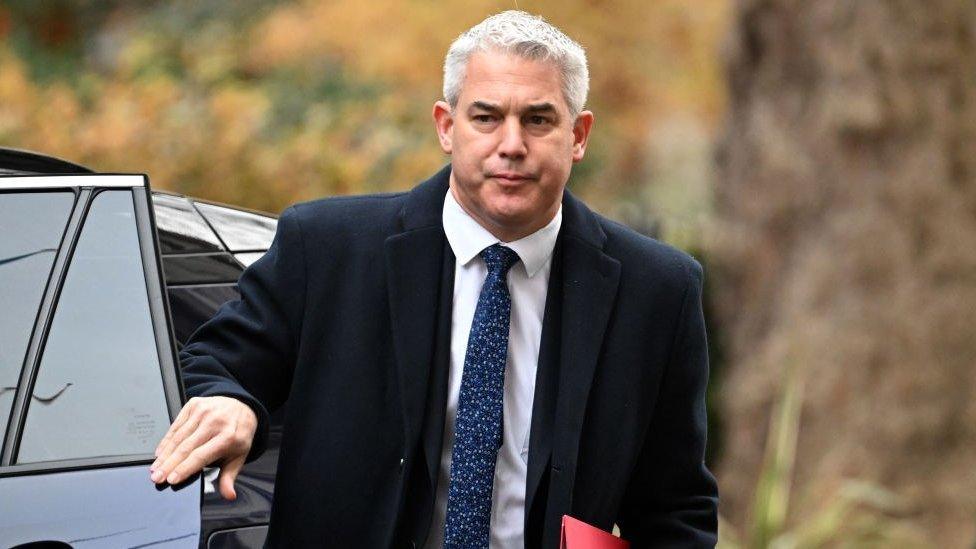
- Published13 January 2023
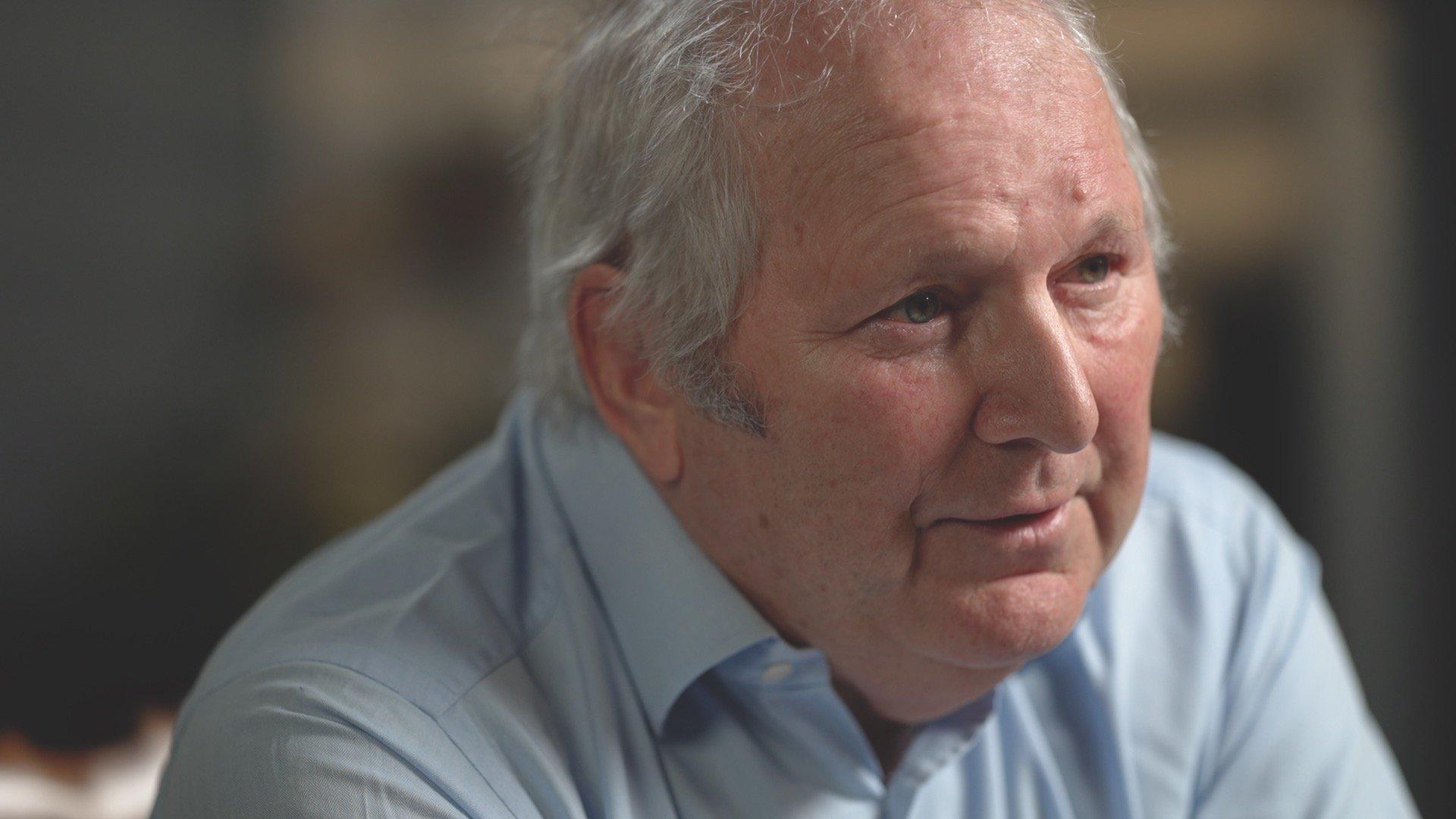
- Published1 December 2022
